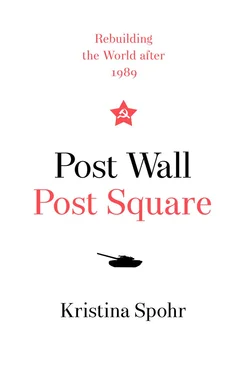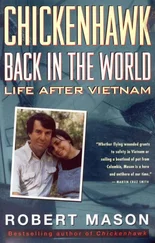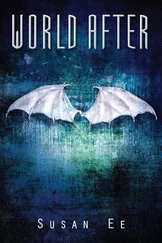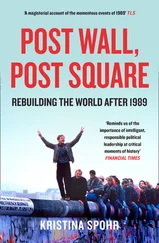And so at Madrid in June 1989 it was agreed by the leaders of the EC 12 to launch the following year the first stage of EMU – completion of the single market by 1992. This would involve abolition of all foreign-exchange controls, a free market in financial services and strengthening of competition policy – which entailed a radical reduction in state subsidies. The other prong of this policy was the reinforcement of social cohesion, which involved freedom of movement between states and guaranteed workers’ rights. Achieving the single market with enhanced cohesion was top priority for this new and exciting chapter in the history of the Community. And with it came a visibly greater role in international affairs for the EC – and its Commission president. This was evident when Bush made a point of meeting Delors in Washington in June, two weeks before Madrid and five weeks ahead of the G7.
The meeting was intended to signal that the United States took seriously the Community and the ‘EC 92’ project (US shorthand for the transformation of the EC into the EU). [93]Keen to head off the danger of an economically protectionist Fortress Europe, Bush and Baker made it quite clear that America wanted to see the completion of the single European market linked with real progress in the so-called Uruguay Round negotatiations on a new agreement about global tariffs and trade – one that would replace the crumbling Cold War GATT system. Delors agreed that the EC 92 and global trade talks had to run together: if the Uruguay Round were not successful, it would not be possible for the Community to meet its EC 92 objectives. In fact, he emphasised, ‘it would be a contradiction for the Uruguay Round to fail and EC 92 to go forward’. The sticking points on all this, however, were French agriculture, because of the country’s entrenched farm lobby, and Japan, with its strong export economy but heavily protected domestic market. Delors hoped that ‘in the future the US, EC, and Canada could jointly put pressure on the Japanese’. [94]
Although apparently emerging as an independent actor, the EC always relied for its effectiveness on the key member states. Delors, for all his ambition, never forgot this. And the most significant economic power in the EC was the Federal Republic, so it was vital to work closely with Kohl. Bush, of course, knew this; and he also understood well that the German–American axis was one way of engaging with the West European engine. After all, the chancellor was genuinely supportive of EMU: as Delors told Bush, ‘Kohl reinforces the goals of the European Community.’ Of course, there was now a danger in the summer of 1989 that further Western European integration might be derailed by the incipient disintegration of Eastern Europe. Yet here again Germany was pivotal.
This became clear during the Paris G7 summit over the question of how to channel aid to Poland and Hungary. It was Kohl who sponsored the idea of the EC as the conduit for Western financial assistance. For the chancellor – ever mindful of the German question – this route offered several advantages. First, West Germany (like America) was keen to maintain the momentum of change within the Eastern bloc but he wanted to keep the process peaceful and avoid bloodshed. A concerted Western economic initiative could prevent anarchy and forestall Soviet military intervention. Second, if the FRG sheltered under the EC umbrella, nobody could blame Kohl going it alone – edging away from West, cosying up to the East and even asserting German power in ways that raised the spectre of the Kaiser and the Führer.
What’s more, unlike Bush, Kohl was ready to put a substantial sum of money on the table. He had already told Bush on 28 June that he intended to offer Hungary an additional DM 1 billion (nearly $500 million) of ‘fresh money’, on top of a loan without conditions of the same amount that he had granted in 1987. Even if the fine print made clear that this funding was actually loans and credits for buying German goods and services rather than direct aid, the sum involved was forty times more than what the president himself had offered Budapest. The chancellor was also very keen to help Poland bilaterally, but this was currently on ice because the aid question was entangled with the position of the German minority in Poland – a sensitive matter for the Poles and for the political right in the FRG. This controversy, rooted in unsettled territorial legacies of the Second World War, was another reminder of the FRG’s limits as an independent international actor. The deadlock over a deal also frustrated Kohl’s aspiration to go to Warsaw. Initially planned for the summer to follow on the heels of Mitterrand and Bush, his state visit to Poland would not take place until 9 November. [95]
Delors and the G24 moved fast because Warsaw and Budapest feared that economic collapse might undermine democratic reform. Officials made a distinction between Hungary and Poland, however, since only the latter had requested short-term food aid to combat severe shortages. Hungary’s twenty-four-page wish list concentrated on better terms of trade with the industrialised world and the liberalisation of foreign investment. The Poles, of course, would come in for similar consideration once their immediate food crisis was resolved. On 18 August, as part of a $120 million package including meat, cereals, citrus fruit and olive oil, the EC announced its first delivery of 10,000 tons of beef to Poland, to arrive in early September. A further shipment of 200,000 tons of wheat stored in Germany, as well as 75,000 tons of barley from France and 25,000 tons from Belgium, were soon to follow – with 500,000 more in the pipeline. The idea was that the Polish government would sell the free food to the people and then reinvest the profits in their economies, especially the private farm sector. This arrangement was formalised in a counterpart fund agreement the G24 negotiated. The role played by EC/G24 in the late summer of 1989 would provide a template for further Eastern aid packages in the future. [96]
So, in the end, it was Brussels, not Washington, which oversaw Western support for change in Central and Eastern Europe. This somewhat undercut Bush’s claims that it was he and the United States who were ‘propelling’ reform in Poland and Hungary. Although his rhetoric had grown bolder since the spring, Bush’s actions revealed his preference for evolution over revolution, privileging stability and order, backed by a deliberate policy of burden-sharing with allies. [97]A mild recession in the USA and a legacy of debt from the Reagan years that had dramatically increased the federal budget deficit reinforced Bush’s apprehensions about the dangers of anarchy in a Europe that might become a bottomless pit for US dollars. The president was therefore pleased with the outcome of the G7 summit. What worried him most was a letter that Mitterrand read out on Bastille Day at the very start of their meeting.
*
The letter came from Gorbachev – it was the first time that a Soviet leader had written officially to the G7. And, it was also the first time the USSR had proposed not only expanded economic cooperation but even direct Soviet participation in such efforts.
‘The formation of a cohesive world economy implies that the multilateral economic partnership be placed on a qualitatively new level,’ Gorbachev wrote. ‘Multilateral East–West cooperation on global economic problems is far behind the development of bilateral ties. This state of things does not appear justified, taking account of the weight that our countries have in the world economy.’ That, he said, was the logical extension of his programme of domestic economic restructuring. ‘Our perestroika is inseparable from a policy aiming at our full participation in the world economy,’ he stated. ‘The world can only gain from the opening up of a market as big as the Soviet Union.’ [98]
Читать дальше












